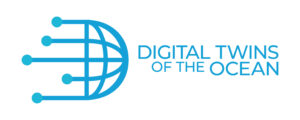Session Presentations and Replays
If you have any questions, please contact DITTO.oceandecade@gmail.com and we will endeavour to respond.
To download the pdf version of the final agenda, click here.
Click on the presentation titles under each session below to access the presentation.
DAY 1: 4 May 2022
- Rebecca Pow MP, Minister for Nature Recovery and the Domestic Environment, UK Department of Environment Food and Rural Affairs (Defra)
- Ms Judith Pirscher, State Secretary Federal Ministry of Education and Research (BMBF) (Video)
- Prof Gideon Henderson (Chief Scientific Advisor to Defra)
Objective: High-level vision for a world where Digital Twins are used to support ocean science, ocean protection, ocean governance and a sustainable Blue Economy.
Keynote talks
- Digital Twins of the Ocean Introduced – John Siddorn (NOC)
- Digital Twins supporting Sustainable Development Goals – Peter Thomson (UN Ocean Envoy)
- Benefits of Digital Twins of the Ocean – Pascal Lamy (Jacques Delors Institute)
- Ocean Professionals supporting the Ocean Agenda – Dee Caffari MBE (Dee Caffari Sailing)
Panel discussion
Objective: Showcase the progress being made in Digital Twins of the Ocean through case studies and demonstrations of Digital Twins in action.
Keynote talks
- Defining the Digital Twin: Exploiting the Maximum Potential of the Technology – Gordon Blair (UKCEH)
- Digital Twins Demonstrated – Maria Fox (BAS)
Lightning talks
- California and Caribbean Coastal Digital Twins in Progress – Dawn Wright (ESRI)
- Geo-data solutions to support the sustainable development of the world’s oceans – Tom Parry (FUGRO)
- From fully coupled atmosphere-ocean-ice modeling systems to digital twin – Michel Jean (Environment and Climate Change Canada)
- Towards a joint digital Twin of the city and the port environment – Javier Sanchez (Nologin, EuroSea’s OSPAC)
Panel discussion
Objective: Provide the audience with an overview of areas where Digital Twins generate value and will catalyze discussion on the future of this technology. Strong focus on users, use cases, who needs DTOs and for what, “requirements”.
Keynote talk
- Twinning in Practice: Digital Twins for Marine Spatial Planning – Stein Arne Rånes (Troms & Finnmark County)
Lighting talks
- Provisioning of ocean services in a southern African context – Marjolaine Krug (DFFE, Oceans and Coastal Research)
- Application of a high-resolution ocean simulation to environmental problems as a component of the Four-Dimensional Virtual Earth – Ryo Furue (APL/JAMSTEC)
- An opportunity to improve diversity and inclusivity in marine science – Chelsey Baker (NOC)
- Blue economy and associated needs – James Carey (UKHO)
- Plankton biodiversity and sustainable development of marine ecosystems – Christian Lindemann (University of Bergen)
Panel Discussion
DAY 2: 5 May 2022
Objective: Explore the flow of data and information in Digital Twins, from observations through the data communications channels and on to curation, storage and use.
Keynote talk
- Managing information and data in federated digital twins of the ocean – Pier Luigi Buttigieg (AWI / GEOMAR)
Lightning talks
- Interoperability architecture for Digital Twins of the Ocean – Arne Berre (SINTEF)
- An Information Management Framework for environmental Digital Twins – Justin Buck (NOC)
- Cloud computing for ocean data management – Kalpana Chaudhari (SAKEC)
Keynote talk
- Sparkly fountains need robust plumbing systems – Terry McConnell (FUGRO)
Lightning talks
- The Future of Ocean Internet of Things – Nevin DiParlo (Sofar ocean)
- Sharing ocean data through the Ocean Data and Information System (ODIS) – Lucy Scott (ODIS)
- Digital twin infrastructure and future services related to digital twins – Adam Rasheed (AWS)
Objective: Explore how models and data sciences can be applied for decision-making and will identify requirements for further scientific and technological advances in modelling tools to meet the needs of future Digital Twins.
Keynote talks
- Models and Data Sciences in Digital Twins – Mark Girolami (Alan Turing Institute)
- Advanced modeling core engines for EU DTO – Yann Drillet (MOi)
Lightning talks
- SOCIB integrated ocean observing: learning from data to improve understanding, prediction and enhance DTO capabilities – Joaquin Tintore (SOCIB/IMEDEA)
- Bridging ocean modelling and machine learning with differentiable emulators– Julien Le Sommer (CNRS)
- Insights into applications of ocean digital twins from IPCC AR6 – Helene Hewitt (Met Office)
- AI and Big Data Meet the Ocean – Stan Matwin (Dalhousie University)
- AI, neural networks and big data analytics to analyze oceanic data for mariners, fishermen, and coastal communities – Udaya Bhaskar (NCOIS)
Panel discussion
Objective: Interacting with Digital Twins will explore the state of the art and innovation to visualize information using web enabled technology, immersive viewers and decision making theaters. Focus on data, models, and visualization to meet user needs.
Keynote talks
- Visualizing the Digital Ocean in a Decision-Making-Theater – Colin Devey (GEOMAR)
- Epic impact through gaming in the Blueverse – Anna Hermsen (TNO)
- Sea Clearly – Winning the Ocean Blue Cloud Hackathon – Delphine Lobelle (Utrecht University)
- Open Source Data Infrastructure for Digital Twins – Ryan Abernathy (Columbia University)
- Digital Twin and Collaboration with Omniverse – Sean McGuire (Nvidia)
- Data-Fusion opportunities – Matthias Renz (Kiel University)
- Digital Twin needs and opportunities for Biodiversity – Isabel Sousa-Pinto (IMAR)
- Information through Emotion – Sil van der Woerd (Studio Birthplace)
Panel discussion
Objective: Coalesce actions in the ocean science and technology community towards the vision of accessible and usable Digital Twins. Provide and communicate the way forward.
Interventions on national activities and plans
Click here for Session 7 summary presentation
- Recommendations and readout from DITTO Working Group Chairs on achieving a DITTO framework – Ocean observations – Sung Yong Kim (KAIST)
- Ocean predictive models and capabilities – Enrique Alvarez (MOi)
- Data lake and Interoperability – John Siddorn (NOC)
- Interactive layers and visualization – Jeroen Steenbek (EII)
- DTO Framework – architecture, design and implementation – Ute Brönner (Fraunhofer IGD)
- Education, Training and Capacity Building – Mônica M. C. Muelbert (UNIFESP Brasil, INCT Mar-COI, FURG)
Sum Up: Reflections from the Co-Chairs

